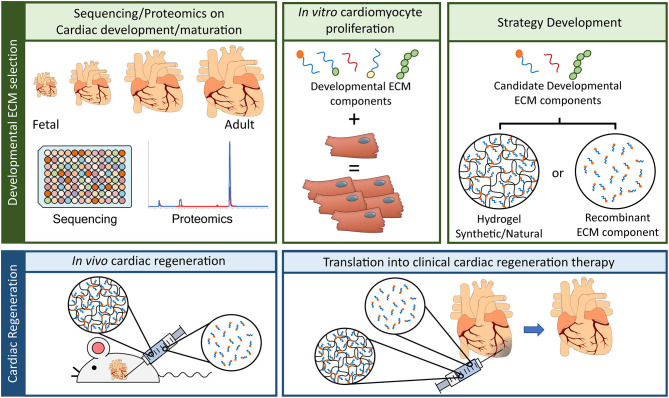Figure 1.
Advancement in ECM based cardiac regenerative research. To advance the field of cardiac regeneration it is essential to take advantage of the innate regenerative capacity of the fetal mammalian heart. “Developmental ECM selection” will require: (1) the utilization of advancements in “-omics” techniques, such as RNA sequencing and proteomics, to identify key ECM components present in the fetal/developing heart, (2) developmental ECM components will need to be screened in vitro for their capacity to influence cardiac regeneration, a key component of which is the induction of cardiomyocyte proliferation, and (3) the delivery of candidate developmental ECM components will have to be determined, either by means of a naturally produced ECM hydrogel, a synthetically produced ECM hydrogel, or by direct administration of the recombinant ECM component (TOP panel, from left to right). Having selected the most suitable ECM component for cardiac regeneration and the delivery system, these will have to be tested for their in vivo capacity to induce cardiac regeneration. The first step will revolve around animal model experiments, either in a rodent model (as depicted) or in a large mammal model (i.e., pig) for heart failure. Here the developed hydrogel harboring the ECM of interest or the recombinant ECM solution will be administered to the animals to determine their efficacy in inducing cardiac regeneration and improving overall cardiac function. The final step, and most crucial, will be to translated this ECM based therapeutic strategy into the clinic.

